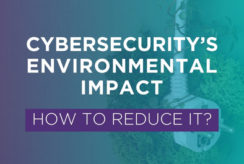Reflections on the Global Positive Forum
The 2018 Global Positive Forum, which Wavestone chose to partner, saw wide-ranging discussions about what is known as “positive business.” Against a backdrop of ongoing reflections on where the planet and future generations are headed, a paradigm shift is taking place.
Businesses are not bystanders in this movement. Previously understood in terms of economic performance alone, firms must now think about their raison d’être in response to the diverse concerns (social, societal, environmental, ethical, etc.) through which they are evaluated today.
If a company is to be positive, what impact should it have on its ecosystem? This insight proposes to first understand the reasons for the emergence of positive business, in order to then conclude on the keys to success in bringing about this transformation.
In order to become a “positive business”, a business should:
1/ Adopt the principles of the positive economy as central to your firm’s strategy and business plans
The mission of a positive business is not only to generate financial profit, but also to improve the living standards of its staff, customers, users, etc. Social and environmental impacts must be taken into account for each and every economic, financial and commercial decision, right up to the highest strategic level.
2/ Adapt your wealth and performance indicators
For example, when conducting annual evaluations with managers and other staff, why not include a section relating to social and environmental performance? As an example, Shell recently announced that its targets for reducing greenhouse gas emissions would be taken into account when setting remuneration levels for its top managers.
3/ Implement a collective approach that engages all stakeholders— both internal and external
There can be no large scale and lasting transformation without the engagement and involvement of each and every implicated stakeholder. Firms should readily rely on collective intelligence as a force for change and for its potential for creativity: drawing on business units, clients, partners, and even civil society. In particular, internal sustainable development requires transformations across all business functions. It’s preferable to adopt bottom-up, experimental, and inclusive approaches to ensure that the fundamental changes required will be sustainable.
These keys to success are detailed and illustrated in this insight using concrete examples. With these keys to success in hand, the company can then envisage its transformation into a “positive business” with a clear vision.



